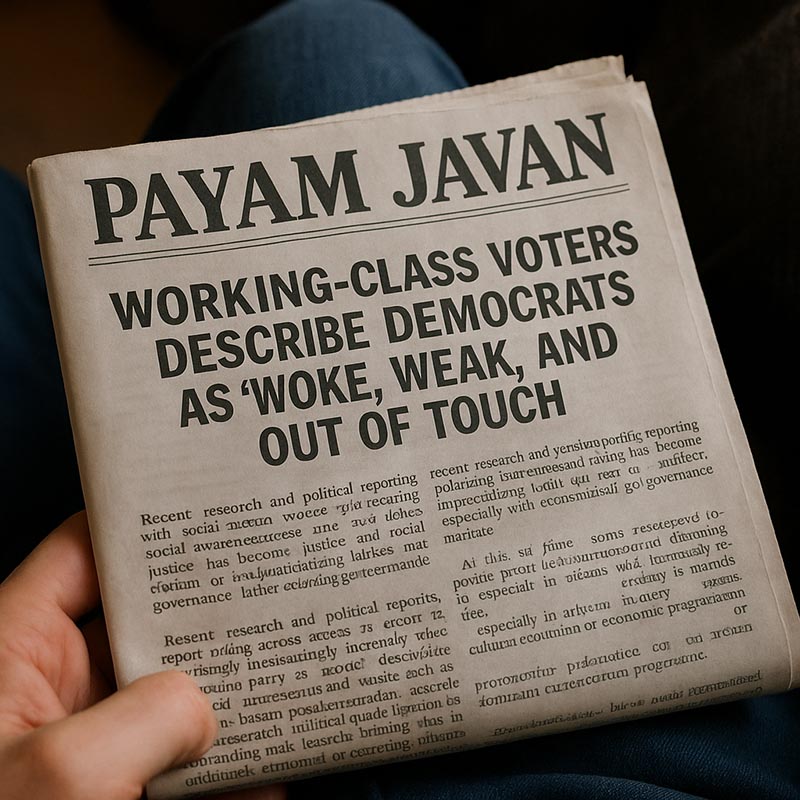Payam Javan: This is true especially when trying to balance progressive ideals with broader public sentiment, economic concerns, or law enforcement needs.
Recent research and political reporting suggest that the term “woke”—originally associated with social awareness and racial justice—has become a polarizing label that some voters associate with overreach, elitism, or impractical governance. This perception has made it harder for some politicians, particularly Democrats, to govern effectively in swing districts or working-class communities.
According to a 2025 internal Democratic Party report, working-class voters across 21 states increasingly describe the party as “woke, weak, and out of touch”. This branding problem has made it difficult for some lawmakers to pass legislation or maintain support, especially in areas where cultural conservatism or economic pragmatism dominate.
At the same time, some progressive politicians have embraced “woke” platforms and won major victories, such as in New York and California, where liberal candidates swept recent elections. This suggests that the impact of “woke” policies is highly context-dependent: they may energize urban, younger, or activist voters while alienating others.
In practice, the tension arises when:
While “woke” policies and their political framing can complicate governance, messaging, and coalition-building for elected officials. The challenge is not just the policies themselves, but how they are perceived, labeled, and debated in a deeply divided political climate.
In short, while “woke” policies are not the technical reason for government shutdown, they are part of the ideological gridlock that prevents resolution. The deeper issue is governance paralysis, where symbolic politics override practical compromise, leaving federal workers unpaid, agencies frozen, and public trust eroded.









